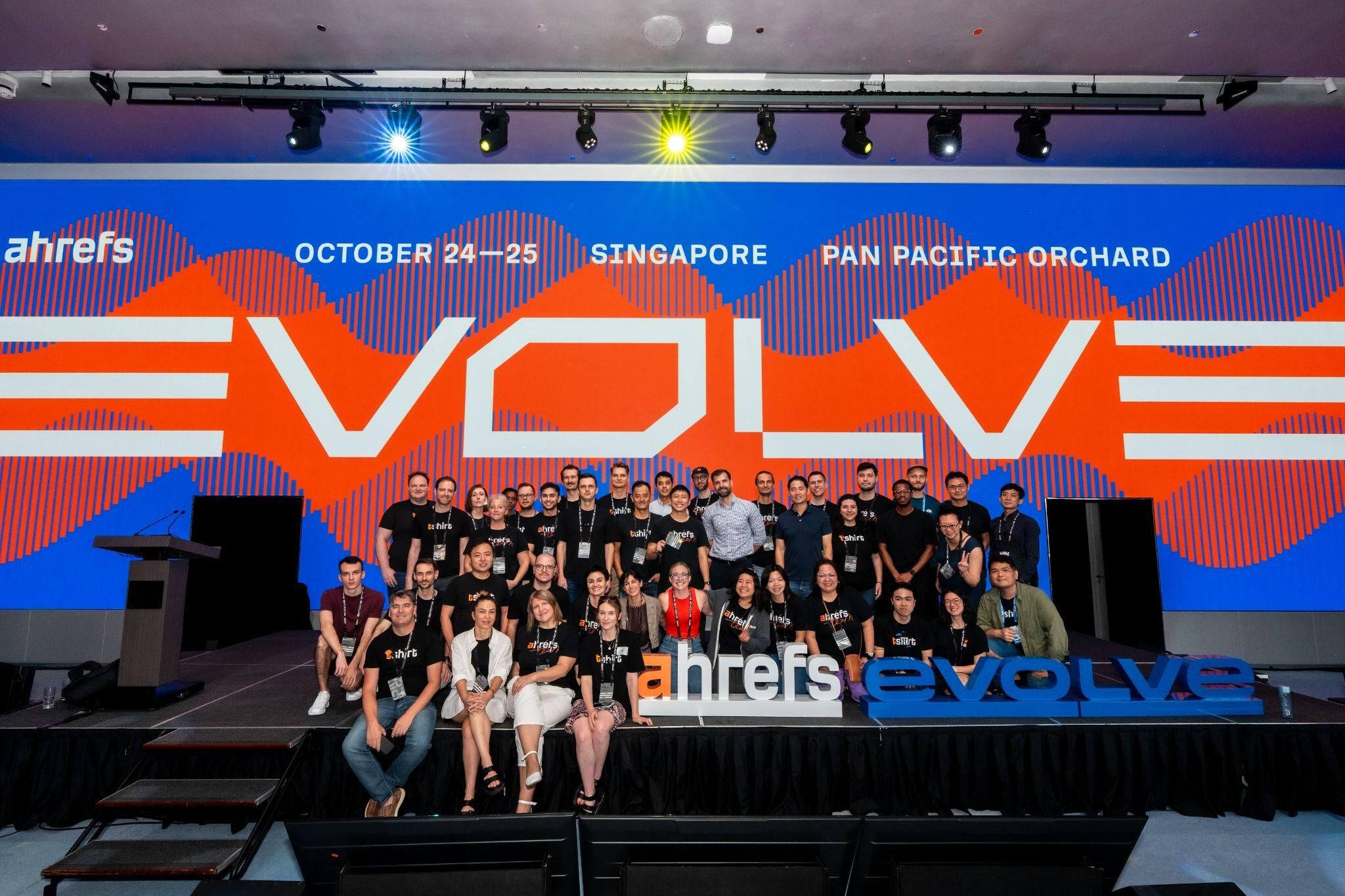
I interviewed Shermin Lim, our events marketer, to find out how we marketed the conference and sold out all our tickets.

Here’s everything we did to promote the conference. You can use these same strategies (or be inspired by them) for your own event—big or small.
- Event description
- Value proposition
- Speaker lineup with bios
- Event agenda
- Pricing and ticket tiers
- Information about pre-event workshops (speakers, bio, pricing, agenda)
- Sponsor information
- Venue information with photos and videos
- FAQs
- Why attend conferences (with explanations from two highly recognizable experts in the industry)
- Local attractions and travel tips

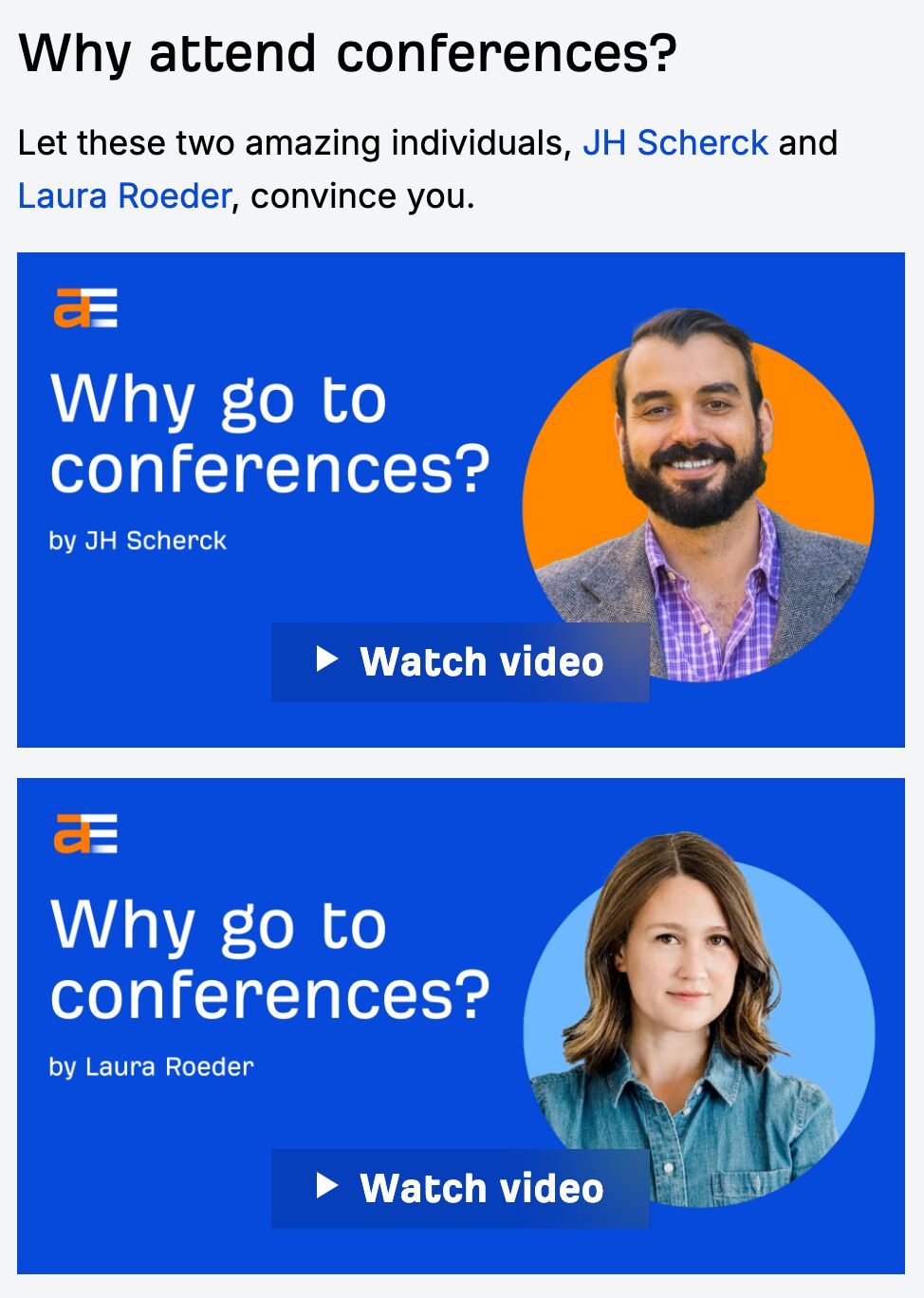
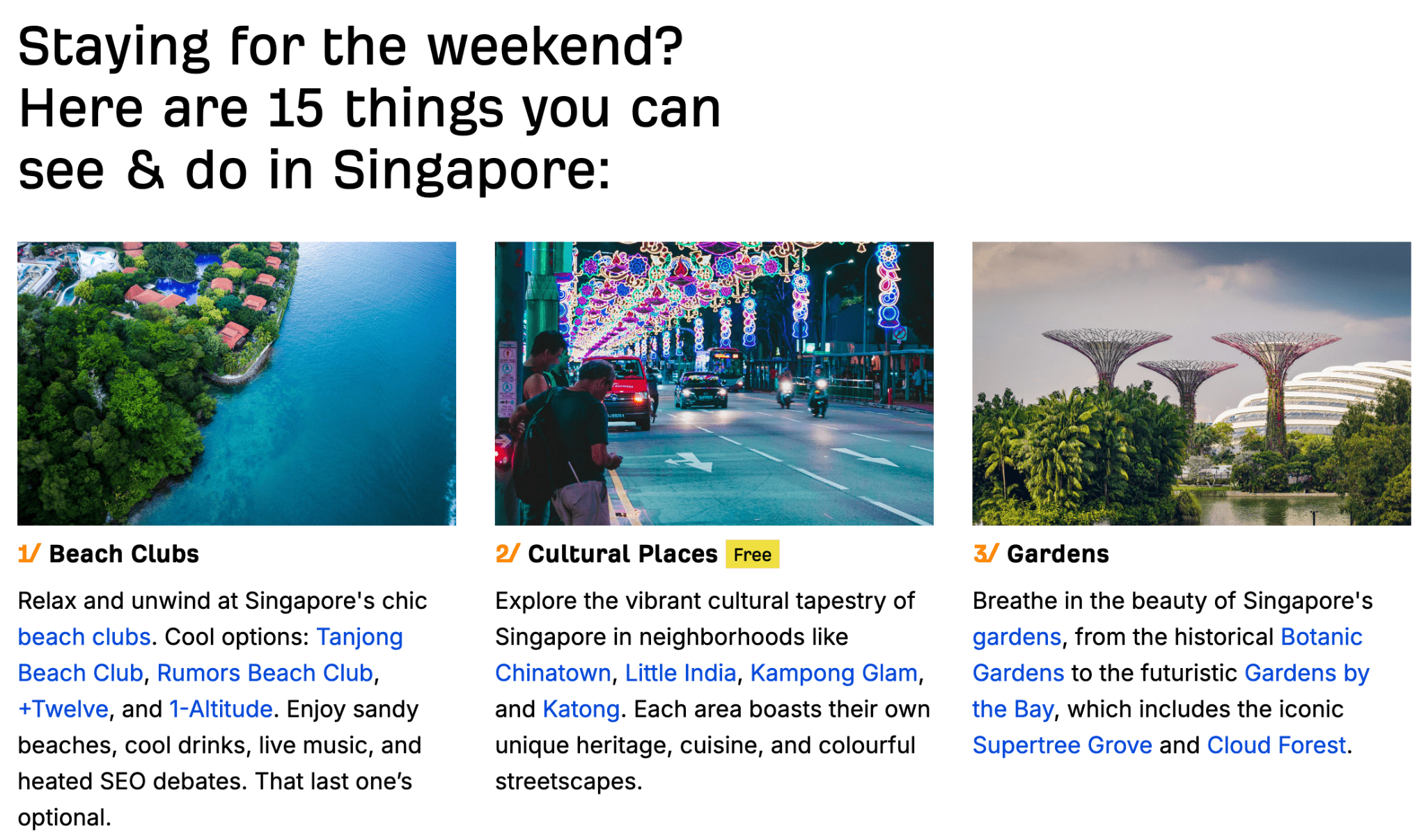
Make this page early. Don’t worry if you have yet to finalize any details. Just leave them as “TBD”, then update the page gradually as you confirm the venue, speakers, and sponsors.


We promoted our venue by producing a short video touring it, highlighting its high ceilings, modern architecture, and open networking spaces:
For example, in order to gain visibility for Evolve, we published two blog posts targeted at “conference”-related keywords:
Here’s how to find such keywords:
- Go to Ahrefs’ Keywords Explorer
- Enter keywords relevant to your event (e.g., marketing, SEO)
- Go to the Matching terms report
- Use the Include filter to look for words like “conferences”, “events”, “meetups”, etc.
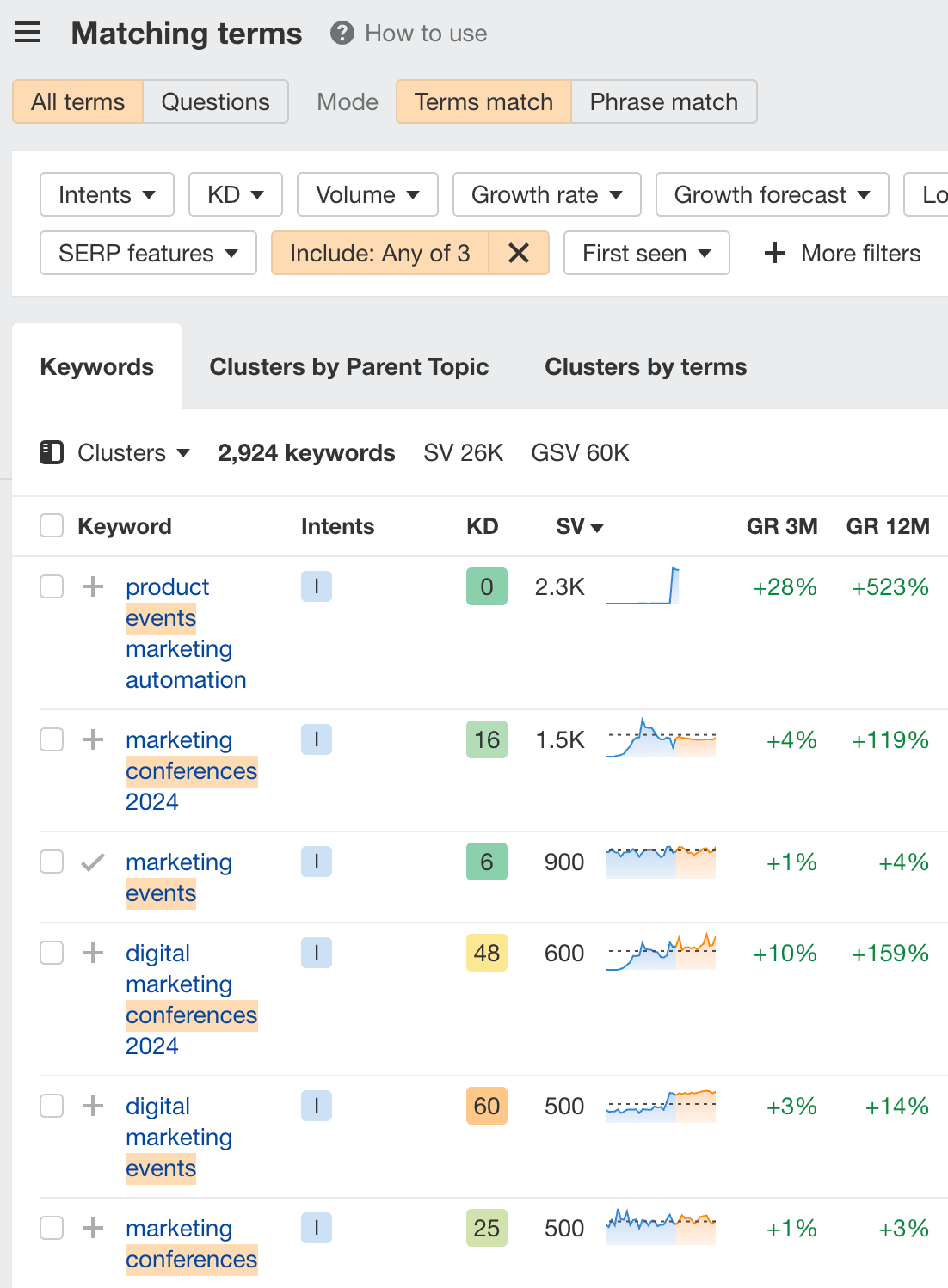
Look through the list and find keywords where you can potentially pitch your event. For example, we naturally mentioned Ahrefs Evolve as one of the SEO conferences worth attending last year:
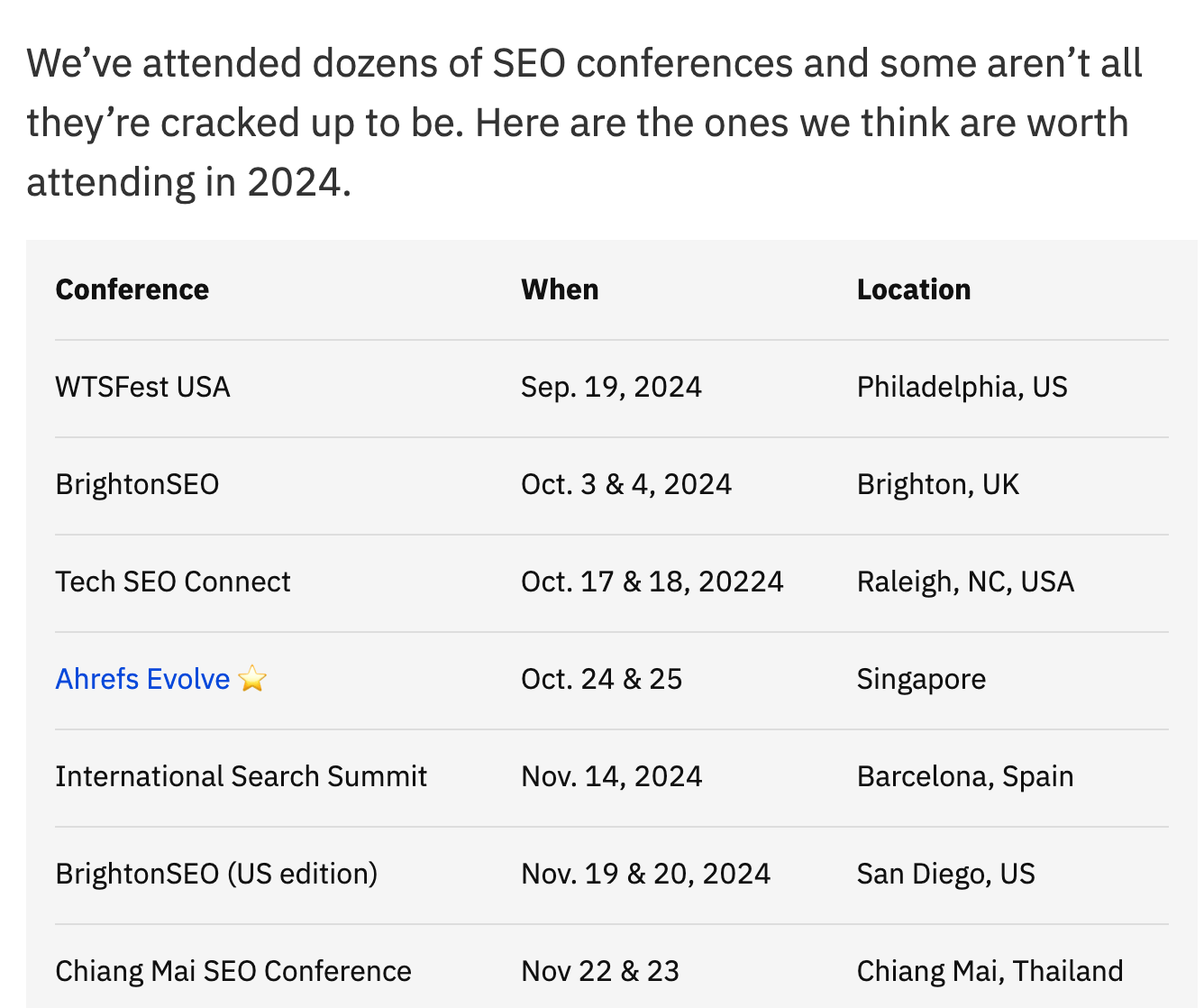
As you can see, this page ranked pretty high on Google and maintained its rankings (at least until most of the mentioned events were over):

The best part is that we can simply update this page this year and it’ll likely regain its rankings again—you can see the spike in rankings every time we update this post:

However, creating content isn’t just about ranking. You can also support your events team. For example, we wrote one for potential attendees on how to persuade their bosses to allow them to attend Evolve:
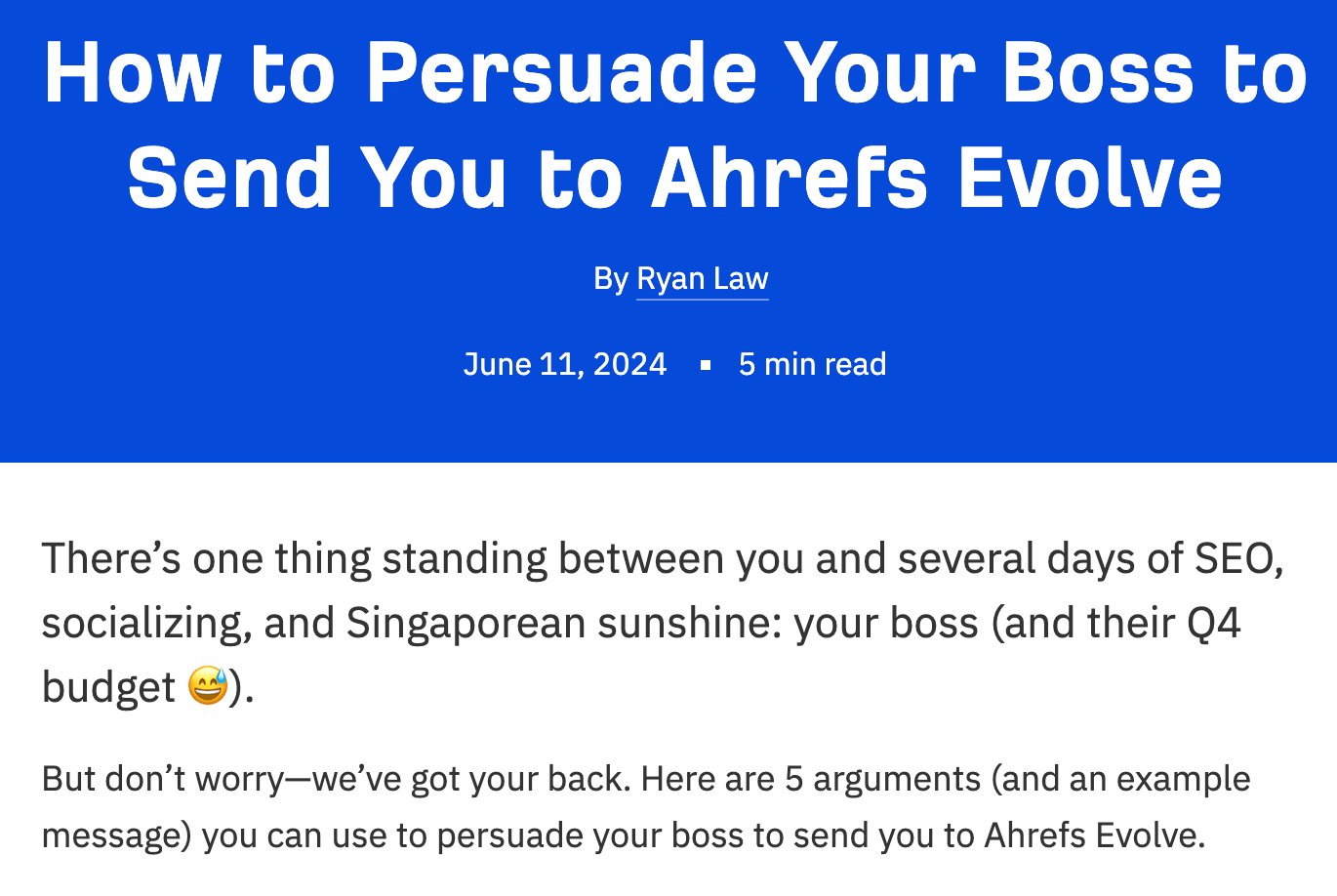
We even gave them an email template they could use right away:
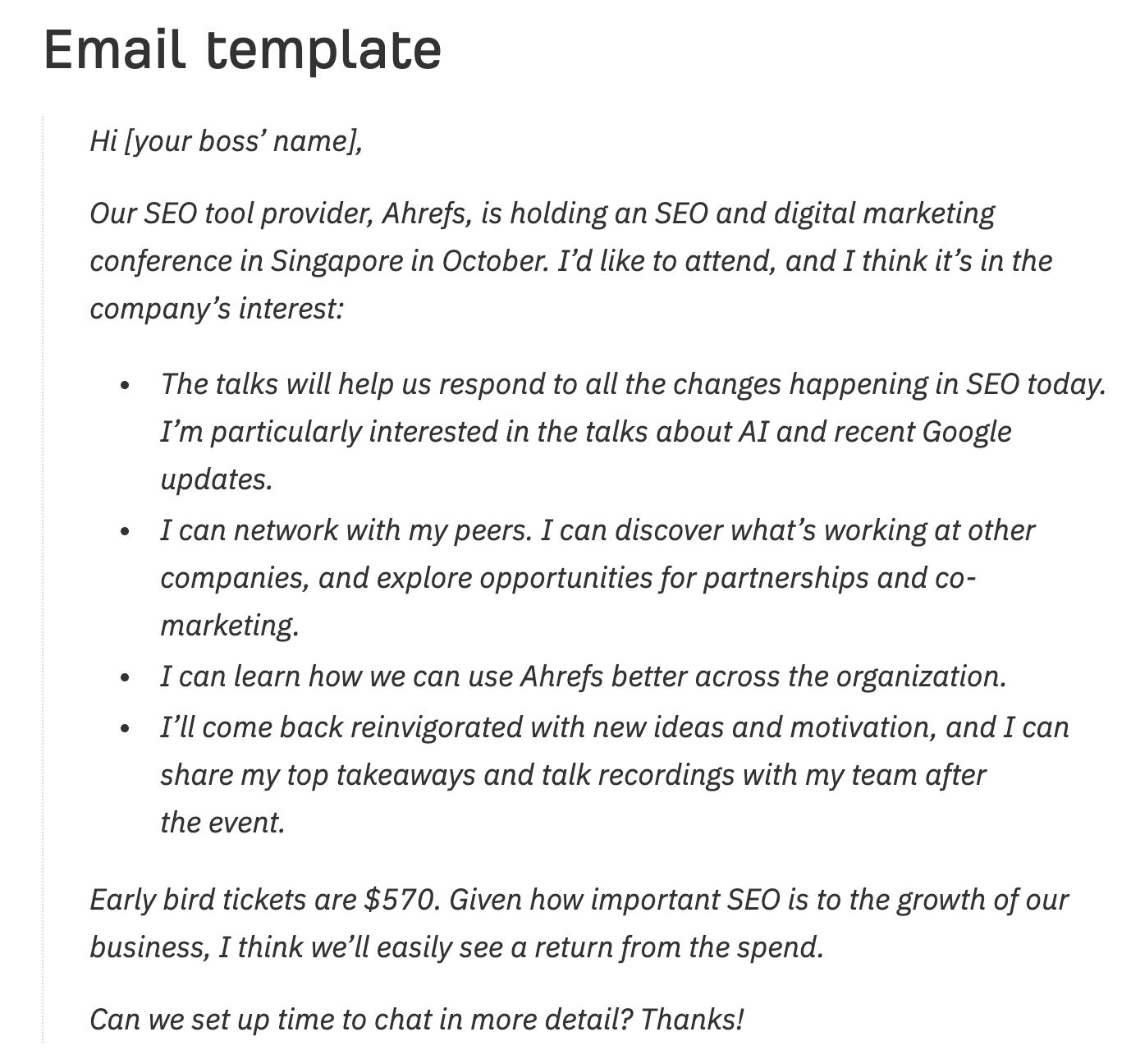
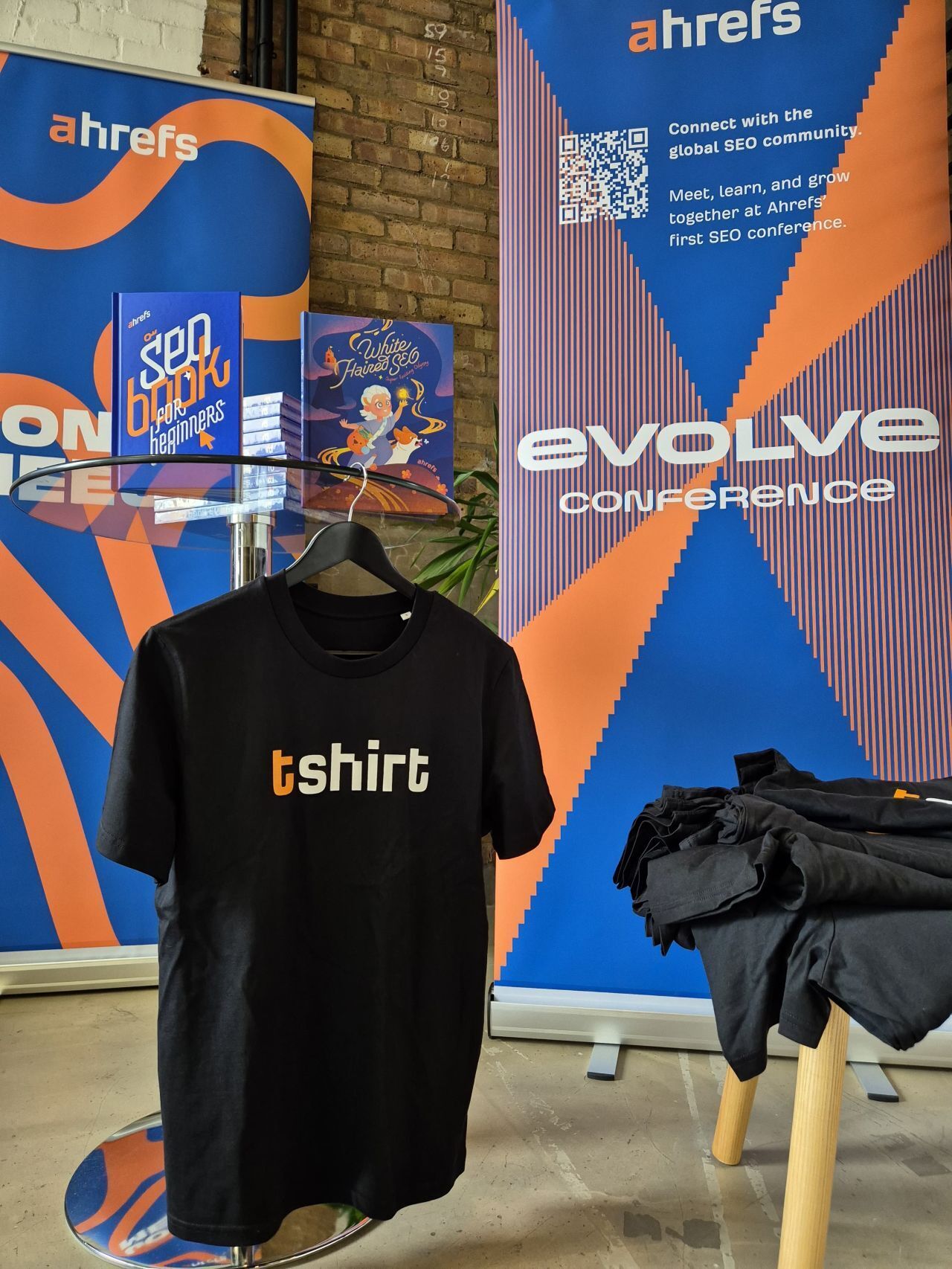
We did this by having a roll-up banner of the event with a QR code people could scan to get the tickets. The emcee, one of our team members, would also make sure to mention it frequently during the workshop itself.
If the event was held in our office, we would display the event information and the QR code on a TV.

If you’re not doing event marketing, don’t worry. You can also promote your event in other events or channels:
- If you’re sponsoring a conference or running a booth in one, have printed materials promoting your event too.
- If you’re speaking at a conference or being interviewed on a podcast/YouTube, make sure to weave in a relevant mention of your upcoming event.
- If you run your own YouTube/podcast, even better. Promote your event in your intro or as a pre-roll ad.
To promote Evolve, we designed a giant helium balloon with the event branding. It wasn’t AI; we actually flew it up, staged a photoshoot (with drones), and turned those images into eye-catching ad creatives.
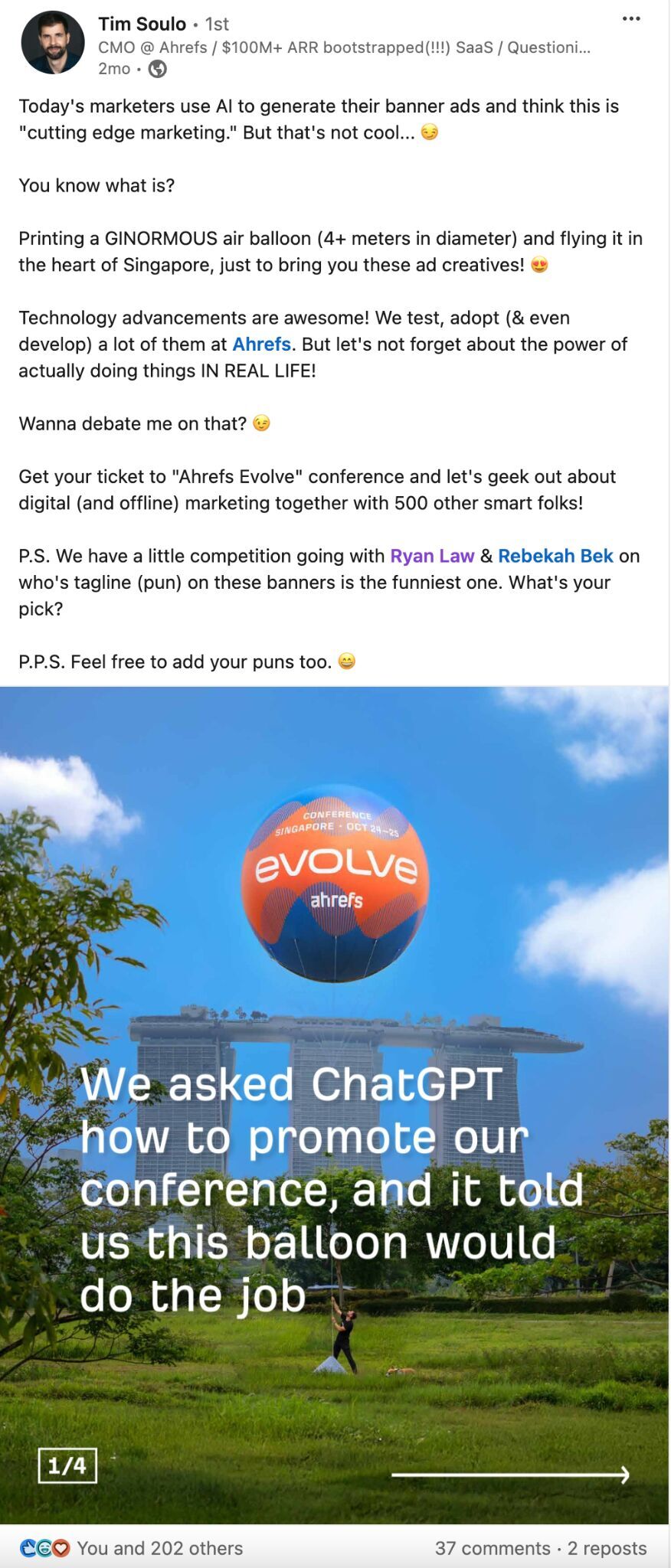
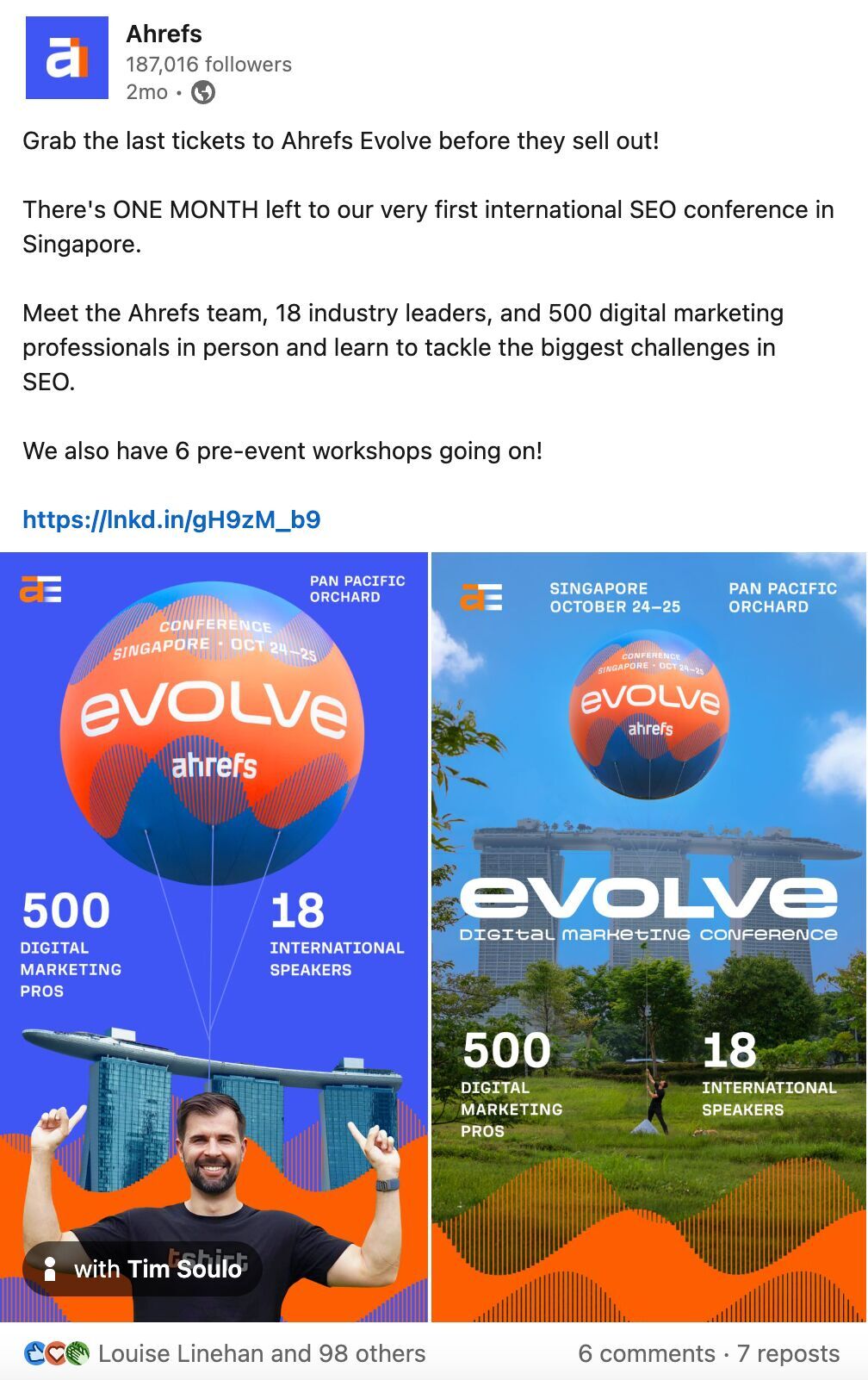
Do you have to spend the same amount of money we did? You don’t have to—there are plenty of low-cost, high-impact stunts.
For example, while not specifically to promote an event, Deliveroo Singapore used to have its staff wear kangaroo onesies and go around the Central Business District to hand out flyers and other swag items.
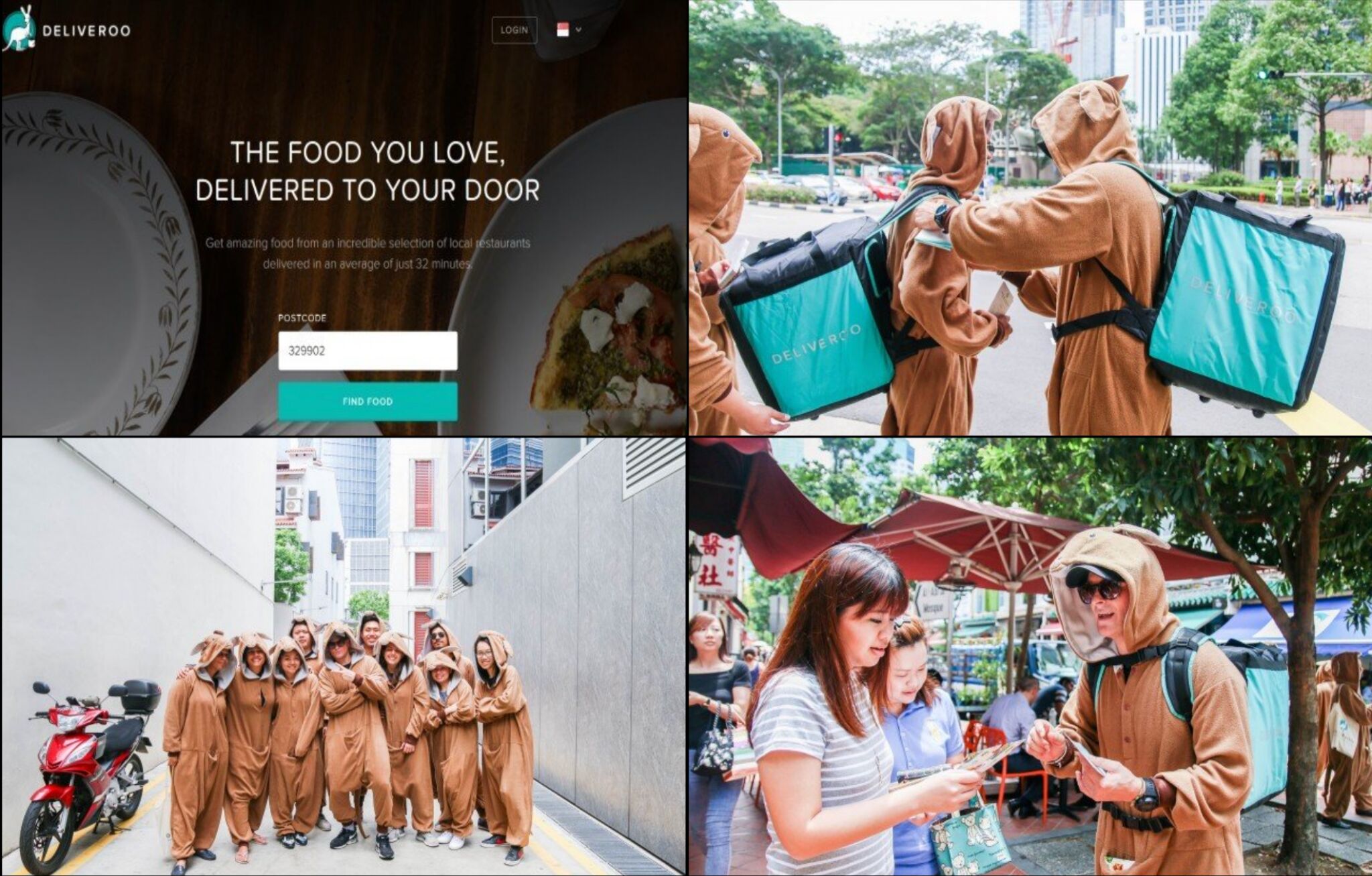
It’s all up to your own creativity.
Similar Posts
Drupal CMS Docs: Should We Combine the CMS and User Guides?
When Drupal CMS 1.0 launched, we rushed to create an MVP of the Drupal CMS Guide. Now, we’re circling back to try and address some loose ends—how should this guide evolve, and how does it relate to the existing Drupal User Guide? The Drupal CMS Guide, like Drupal CMS itself, was conceived and started super…
Drupal AI: How to Set It Up and Try It Out
After watching the Driesnote earlier this week, I wanted to try and play around with the AI tools that were demonstrated. Mostly because I find this space fascinating, and I like to try and see what kind of goofy things I can get the robots to do. So I installed all the relevant modules on…
Understanding the Difference Between Cache Keys and Cache Tags in Drupal
I recently got this this question via the feedback form on the bottom of the Cache API Overview tutorial: “What is the difference between cache keys and cache tags? Why do I need a tag for node:5 when I can just invalidate it using a partial key like [‘node’, 5]?” After digging into the topic…
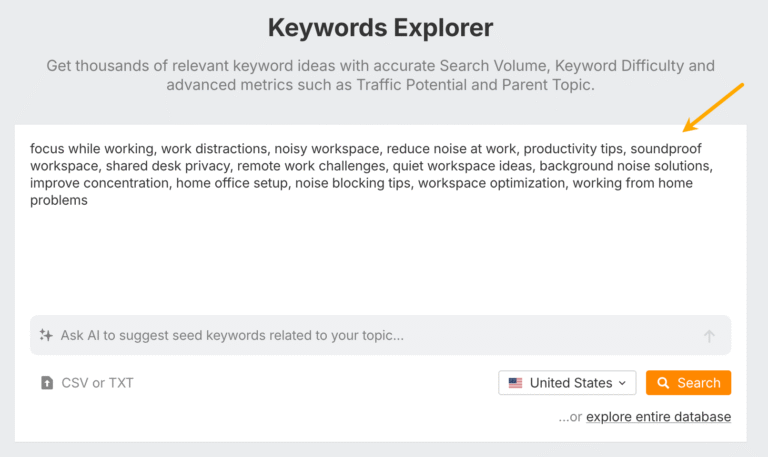
The Lean Guide to Product Research
Ever had a brilliant product idea but felt stuck, unsure if anyone would actually buy it? You’re not alone. Many aspiring entrepreneurs believe that product research is a complex and expensive process reserved for big companies with huge budgets. The good news is that’s no longer true. Today, anyone with an internet connection can uncover…
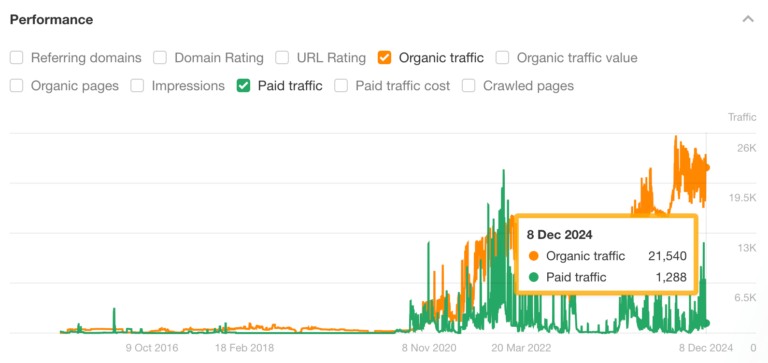
£9M Ecommerce Sales: 6 Takeaways From the Success of CarMats.co.uk
In May 2020, during the height of the COVID pandemic, Ash Young started an ecommerce store selling car mats in the UK. His goal was to hit £1M in sales in a year. He hit that target in just 9 months. Today his store has turned over ~£9M. Given that the site’s monthly traffic peaked…
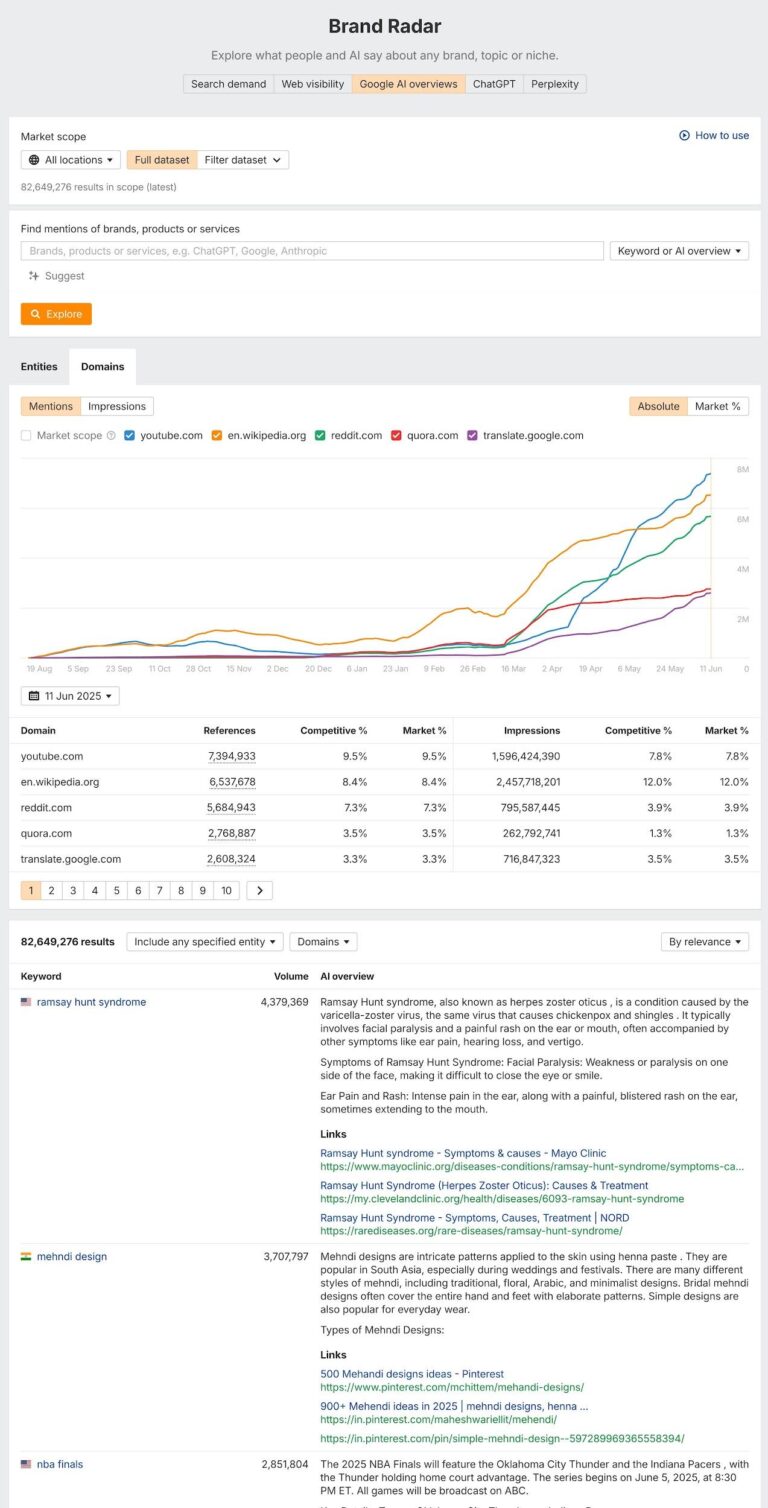
Websites With More Organic Search Traffic Get Mentioned More in AI Search
I don’t think this result will come as a surprise to anyone. Websites that get more traffic in traditional organic search also get mentioned more in AI Search. Popular sites are popular, even if the search system changes. I looked at the top 50 websites mentioned in Ahrefs Brand Radar for Google AI Overviews, ChatGPT,…
